Skip to product information
-
Media gallery  Media gallery
Media gallery
-
Media gallery  Media gallery
Media gallery
-
Media gallery  Media gallery
Media gallery
-
Media gallery  Media gallery
Media gallery
-
Media gallery  Media gallery
Media gallery
-
Media gallery  Media gallery
Media gallery
-
Media gallery  Media gallery
Media gallery
-
Media gallery  Media gallery
Media gallery
1
/
of
8
SKU
2917
Pinewood Derby Speed Secrets
Design and Build the Ultimate Car- Regular price
- $16.99 USD
- Regular price
-
- Sale price
- $16.99 USD
- Unit price
- / per
Shipping calculated at checkout.
Couldn't load pickup availability
Description
Description
First timers and seasoned competitors alike can separate themselves from the rest of the pack with these speed secrets from an undefeated pinewood derby champ. Includes hundreds of photos and diagrams for making the fastest Pinewood Derby car in the race.
Details
Details
| Pages | 120 |
|---|---|
| Publish Date | 2006-10-15 |
| Series | |
| Size | 8.0" x 8.0" x 0.3346" |
| Author | David Meade |
Reviews
Reviews
s
step instructions are clear and concise, and they really will help you create the ultimate Pinewood Derby racecar.
Once racers have mastered the thrill of building a Derby car, they might be ready to go on to David Meade's book Pinewood Derby Speed Secrets: Design and Build the Ultimate Car. Meade features the same photographer as the previous book and offers the same clear instructions as well as excellent advice. All instructions are within regulation, and the book is officially licensed by the Boy Scouts of America. The author notes that the "Pinewood Derby strengthens relationships, while promoting craftsmanship and healthy competition."
The book begins with a brief history of the Pinewood Derby and quickly moves on to the car plans. These are not mere templates; they are aerodynamic discussions! Readers are told how to maximize potential energy, reduce friction, and reduce wheel inertia. And this is barely the beginning. Great detail is given to weight placement, wheelbase length, lubrication, and so much more. There are so many details and ideas that I never would have dreamed possible. It never would have occurred to me to sand inside a wheel bore, late alone taper an axle head to reduce friction. The author has thought of everything. And then he tested and retested and made certain he had the best possible methods mastered. The step
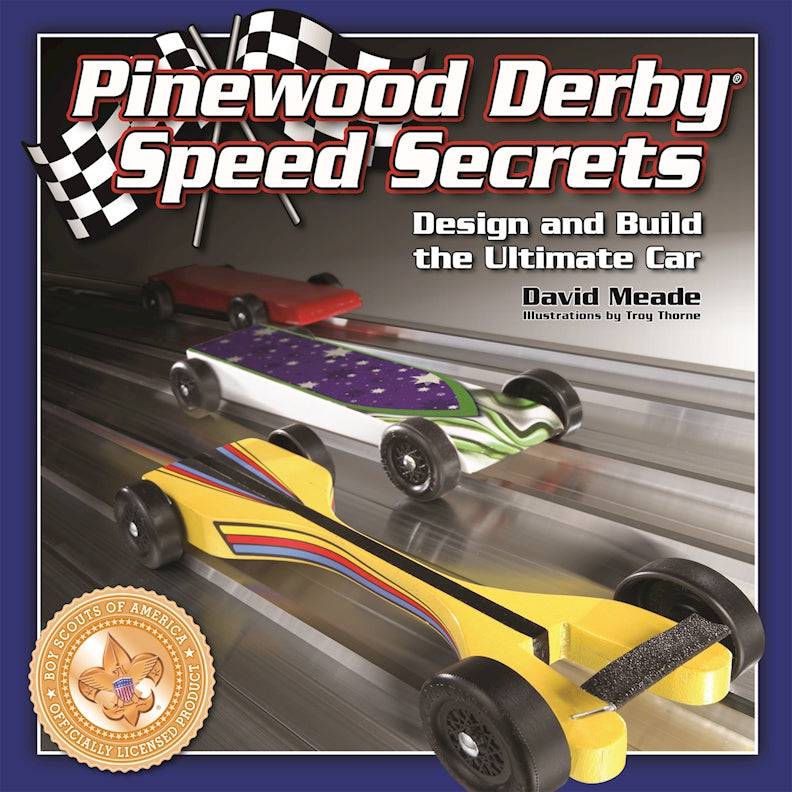
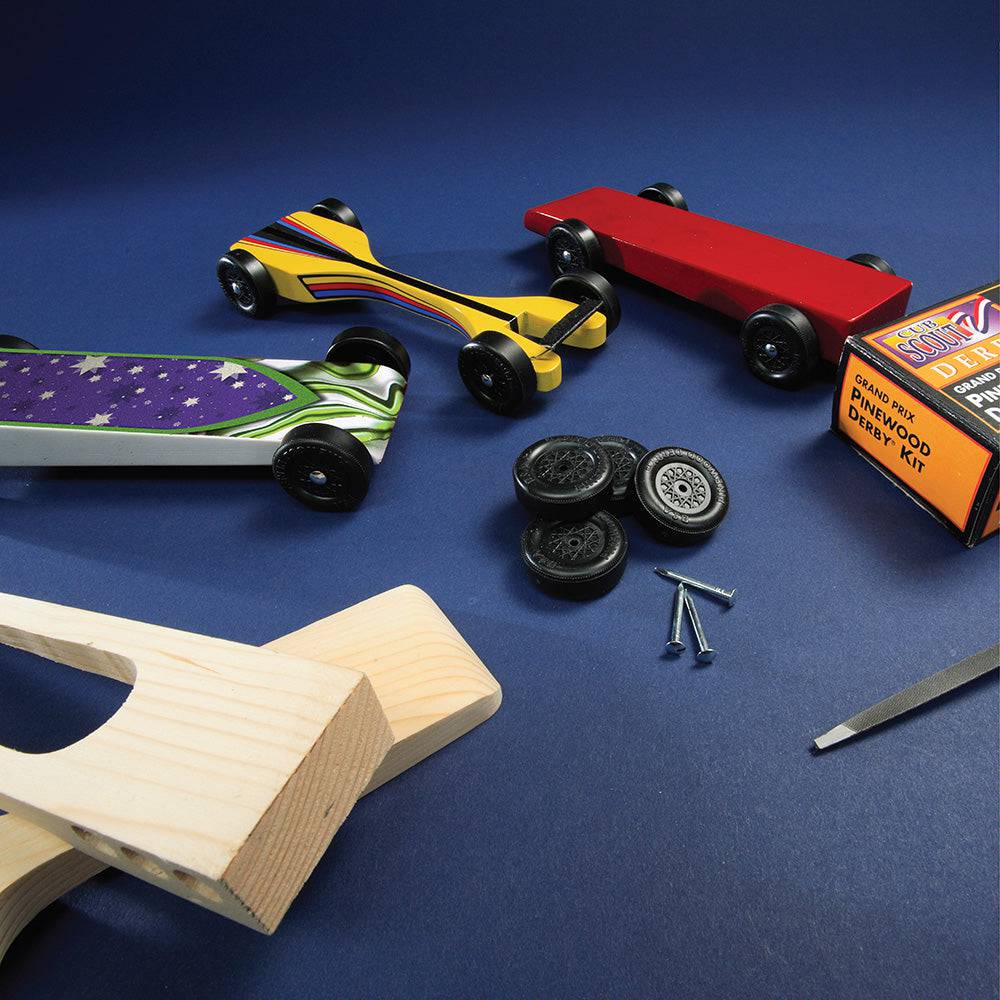
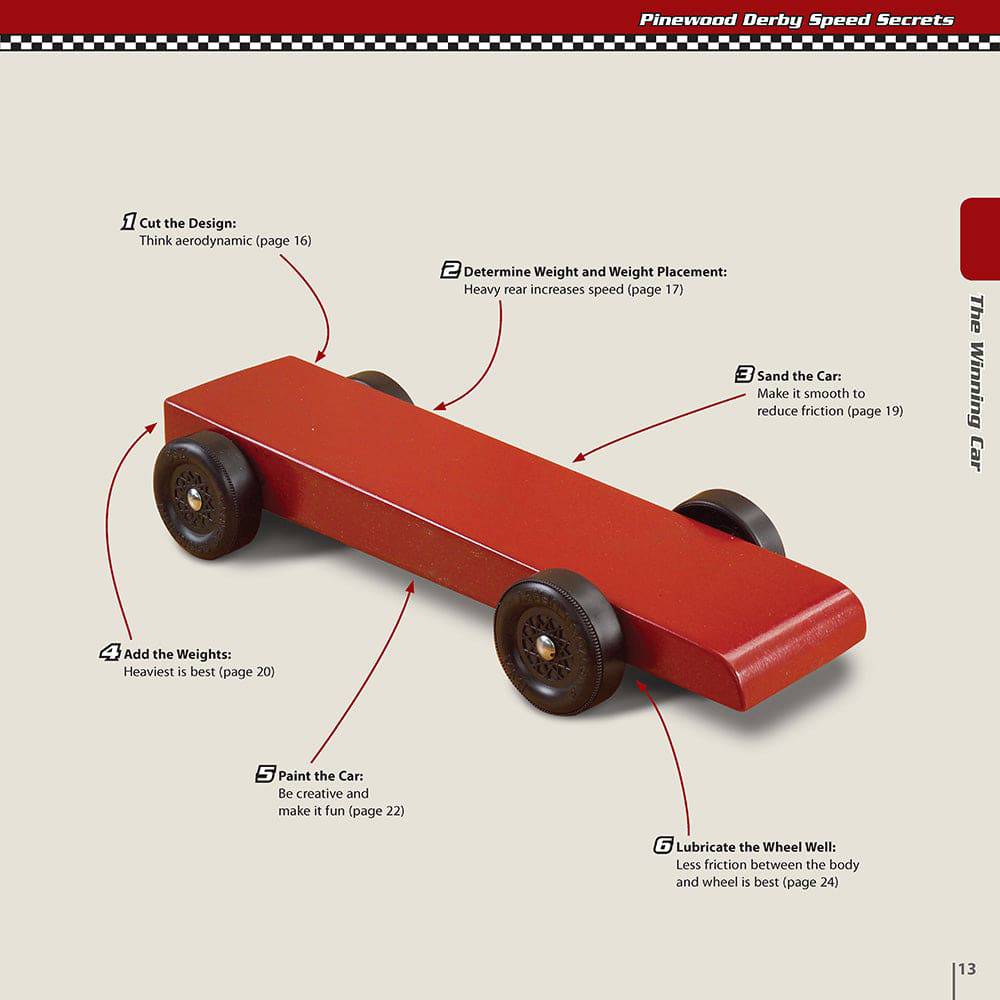
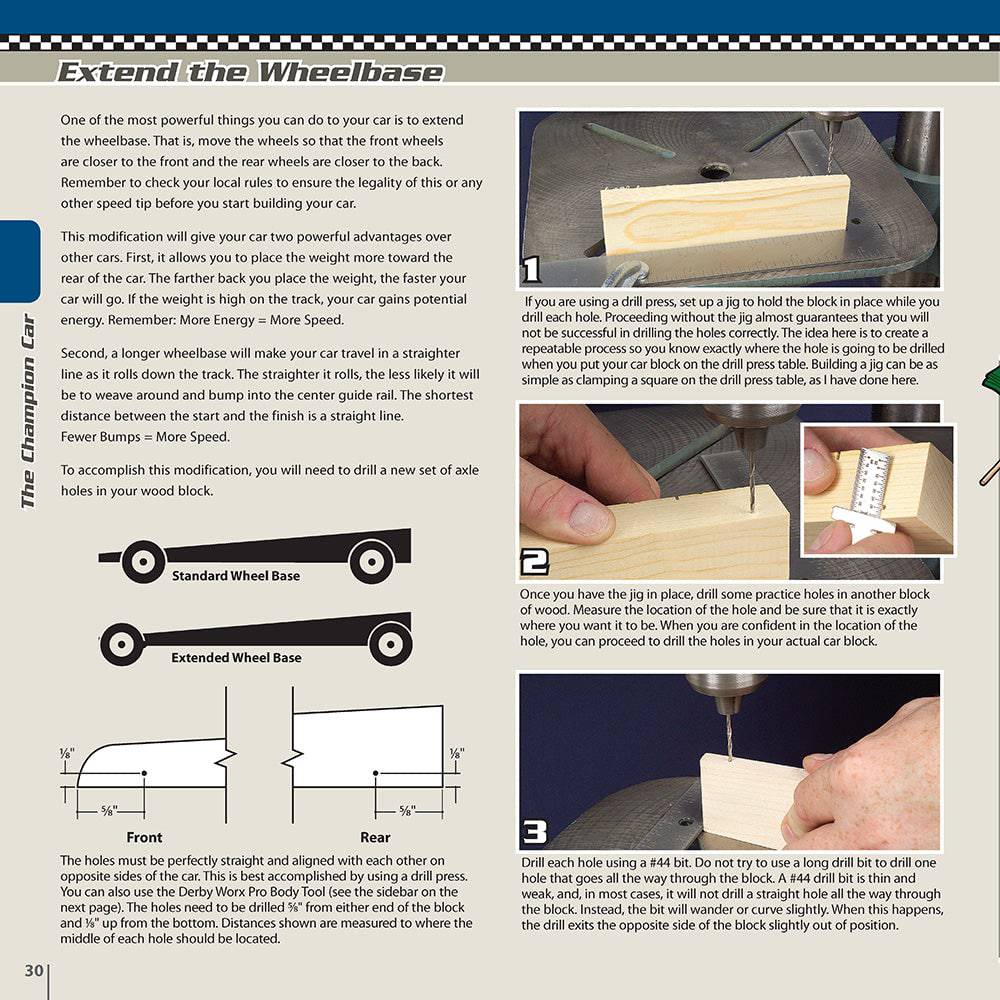
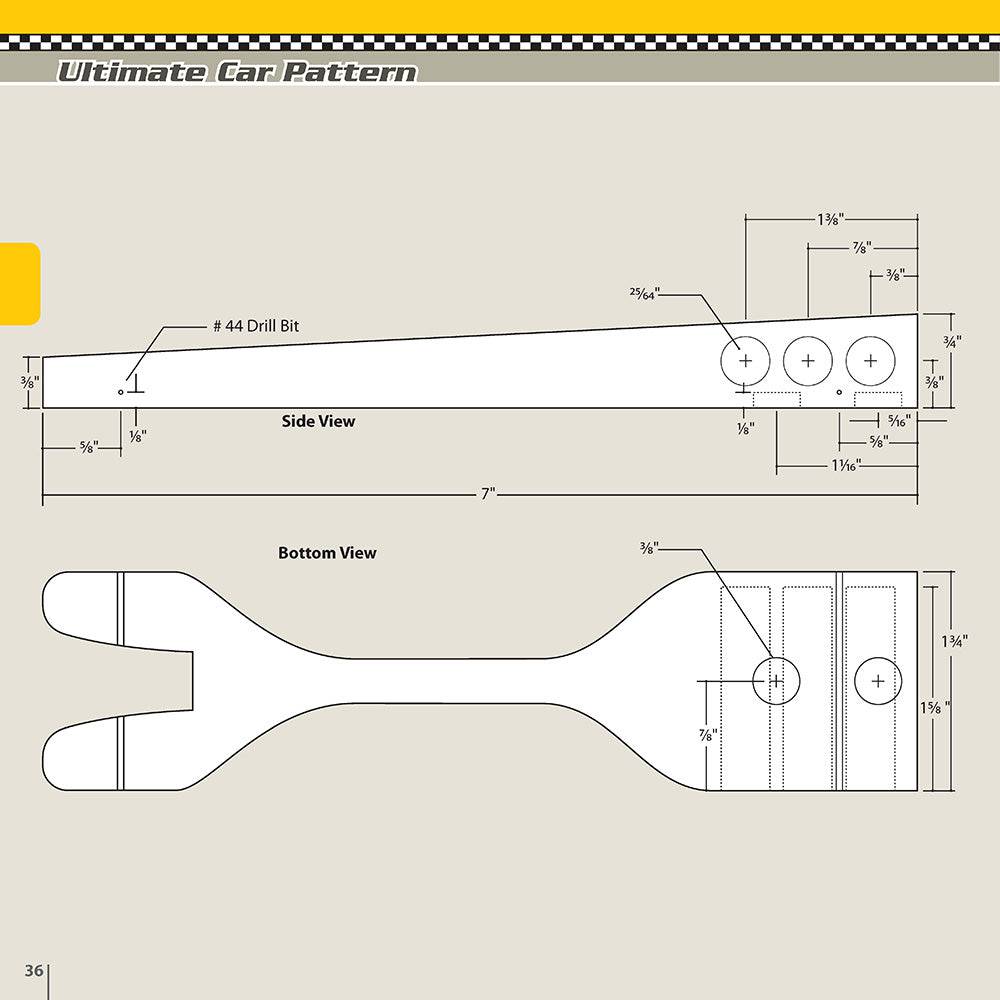
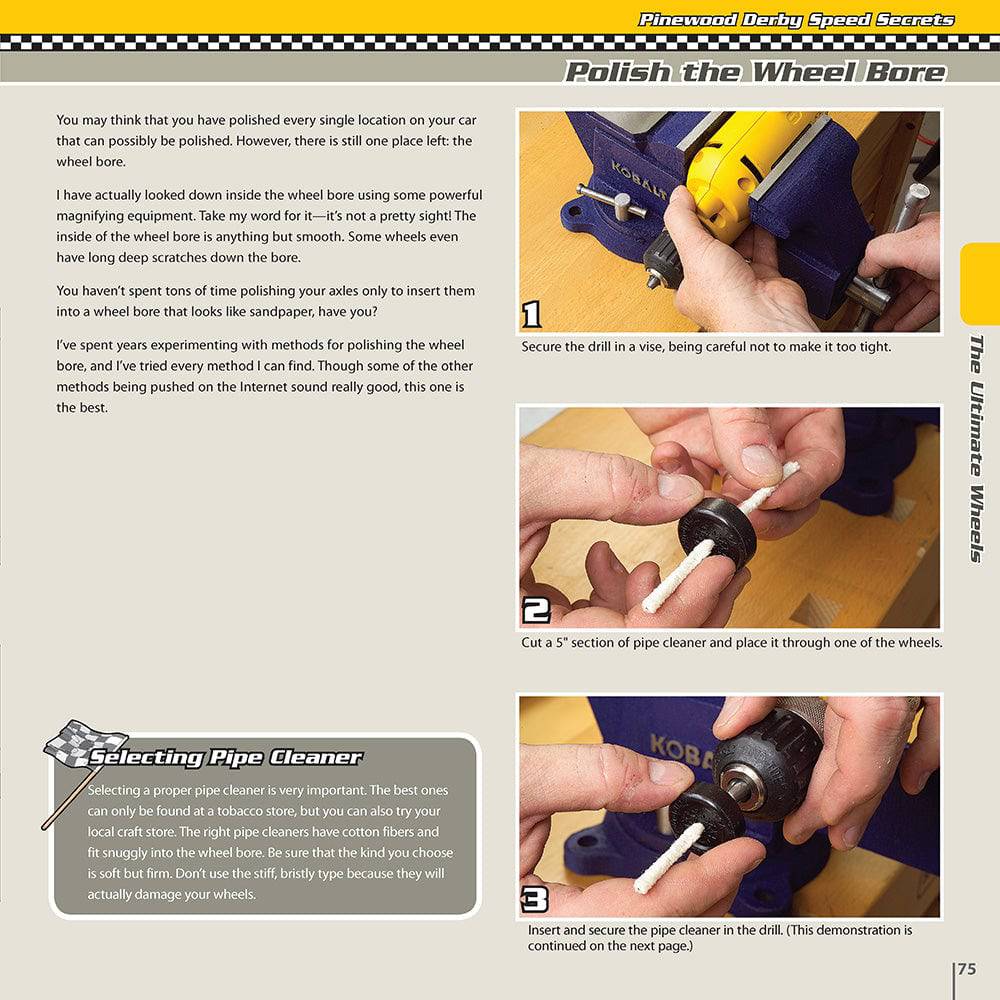
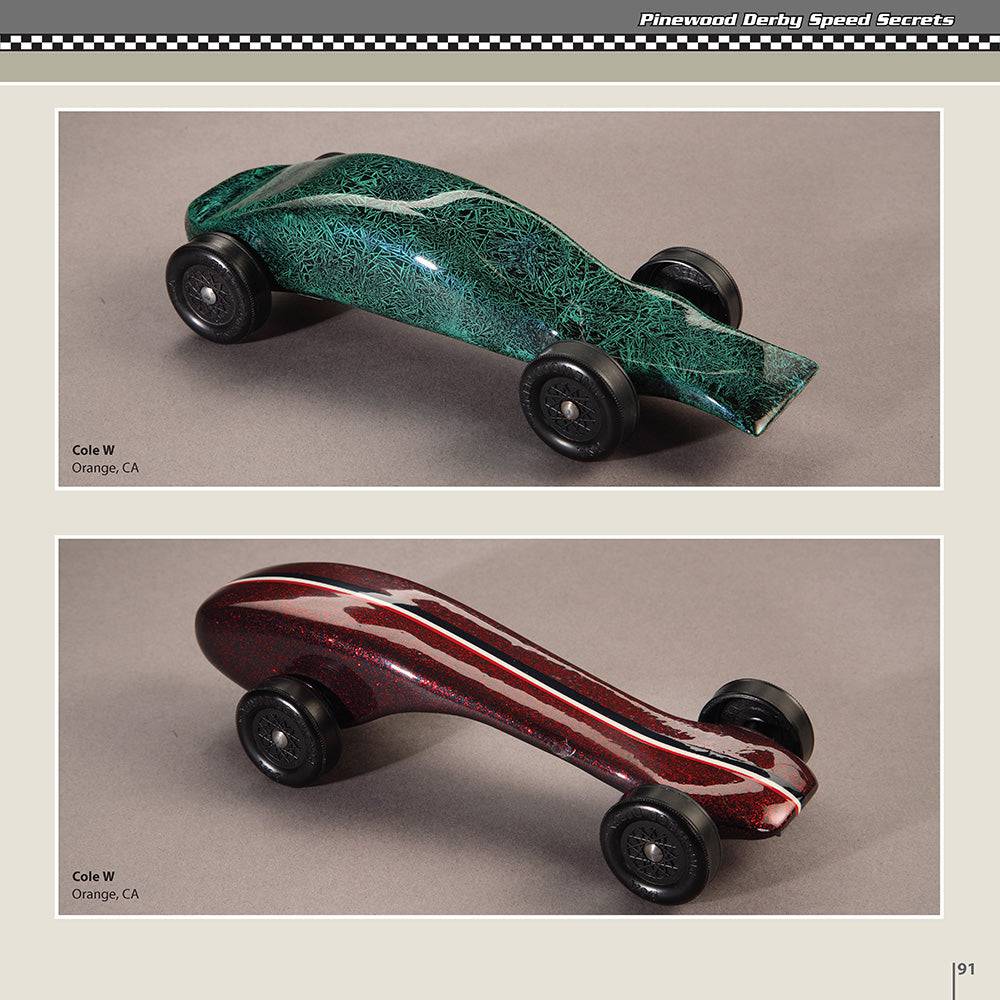
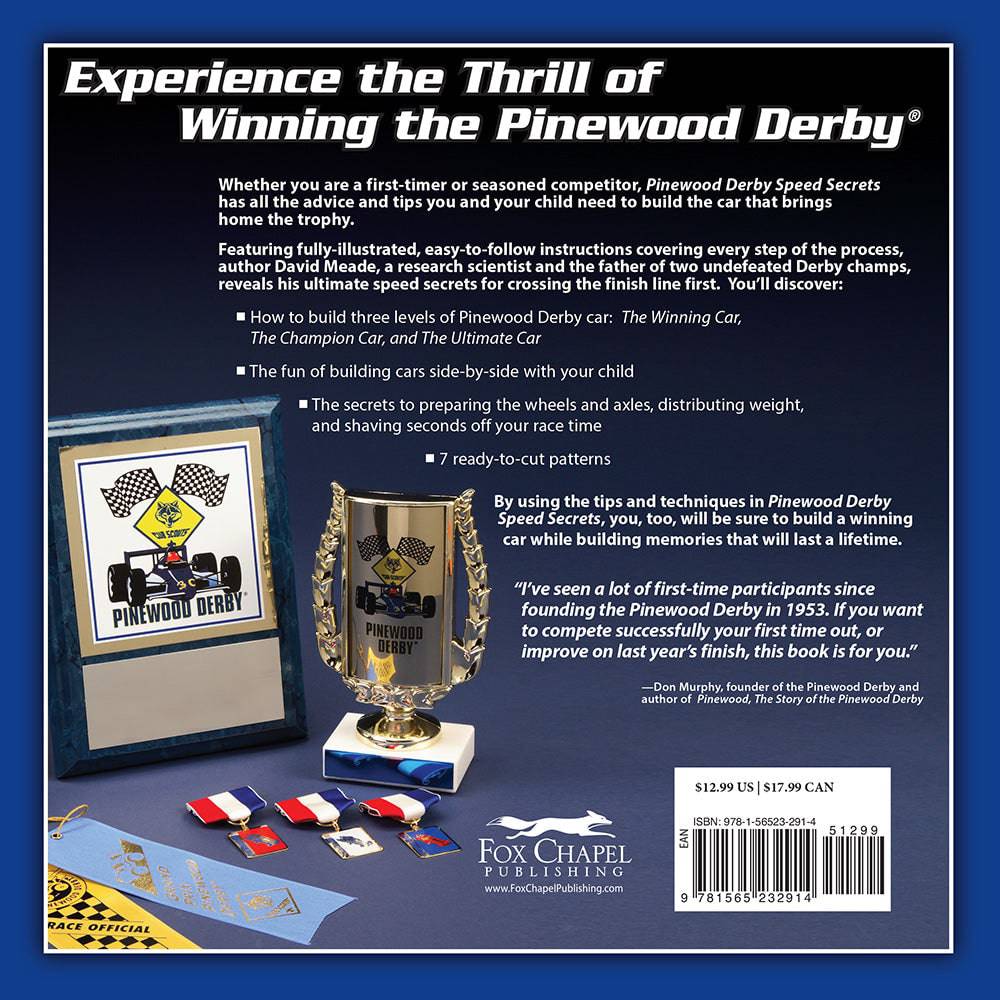
Notified by email when this product becomes available
PREVIEW
You May Also Like
Be in the Know
Learn about the newest releases, online promotions, special events and more!
- Choosing a selection results in a full page refresh.








